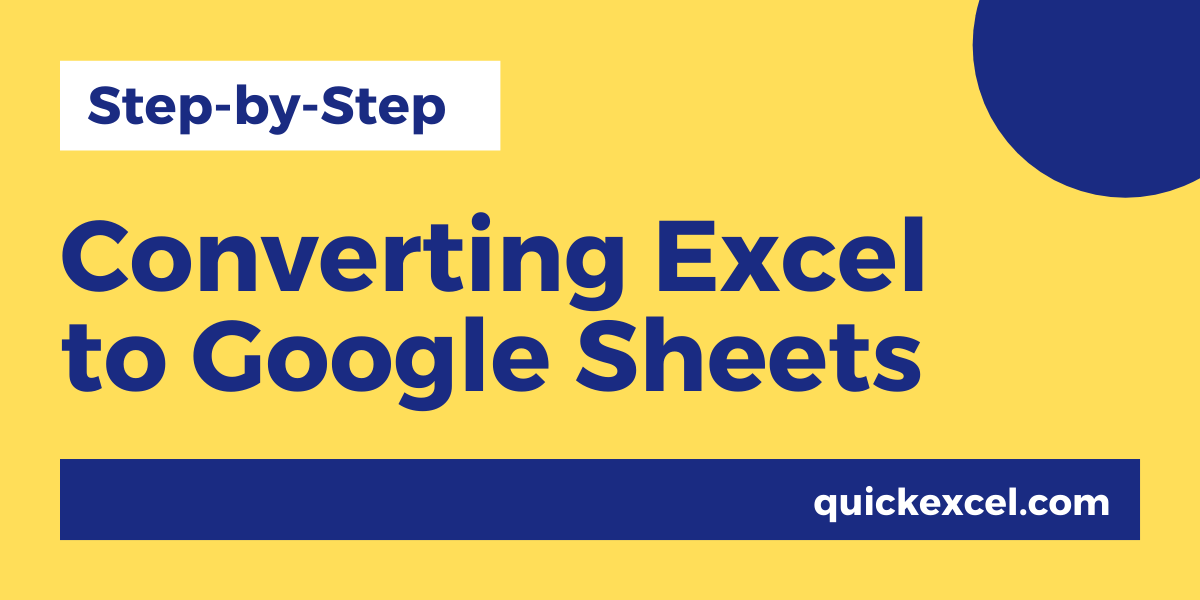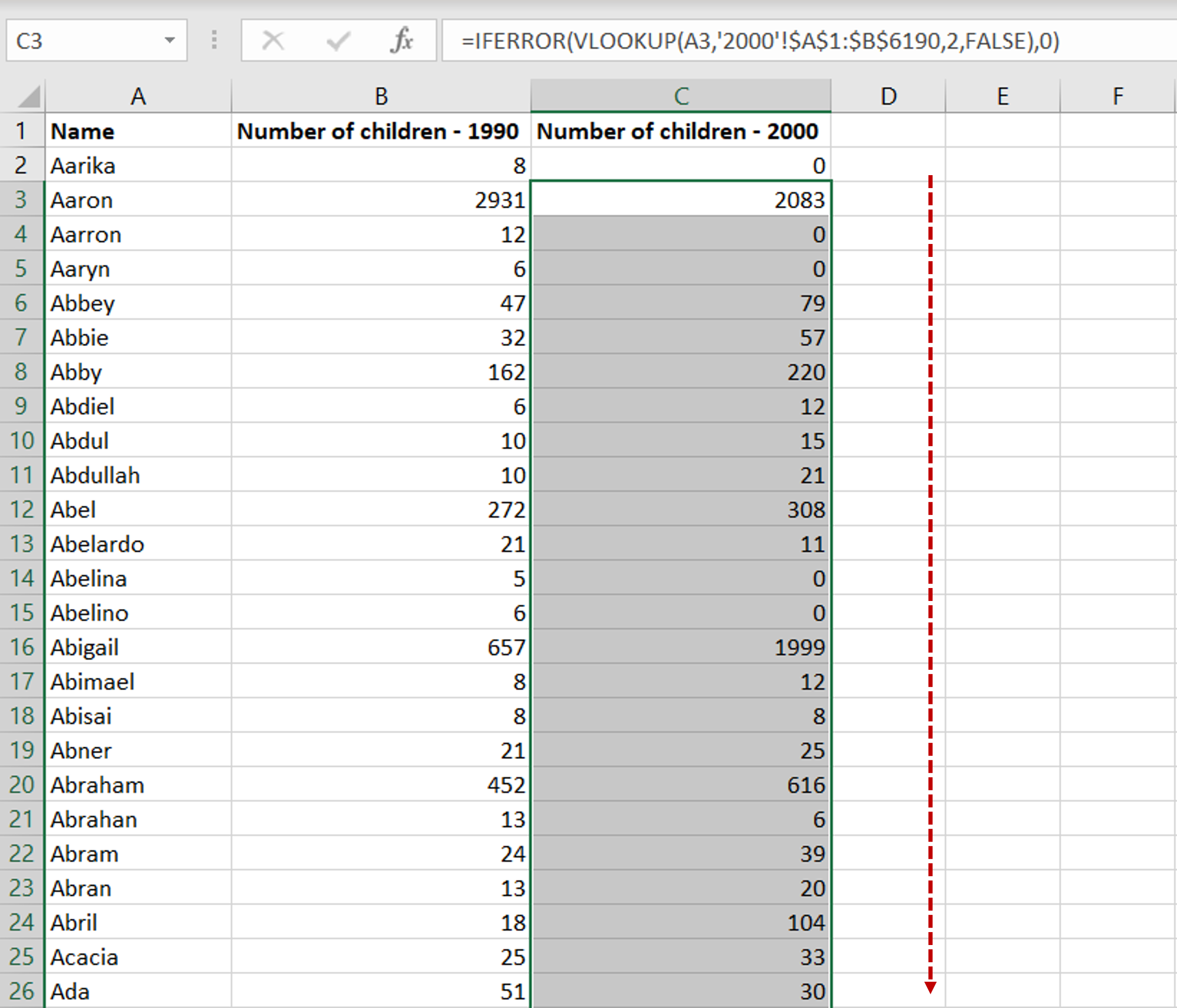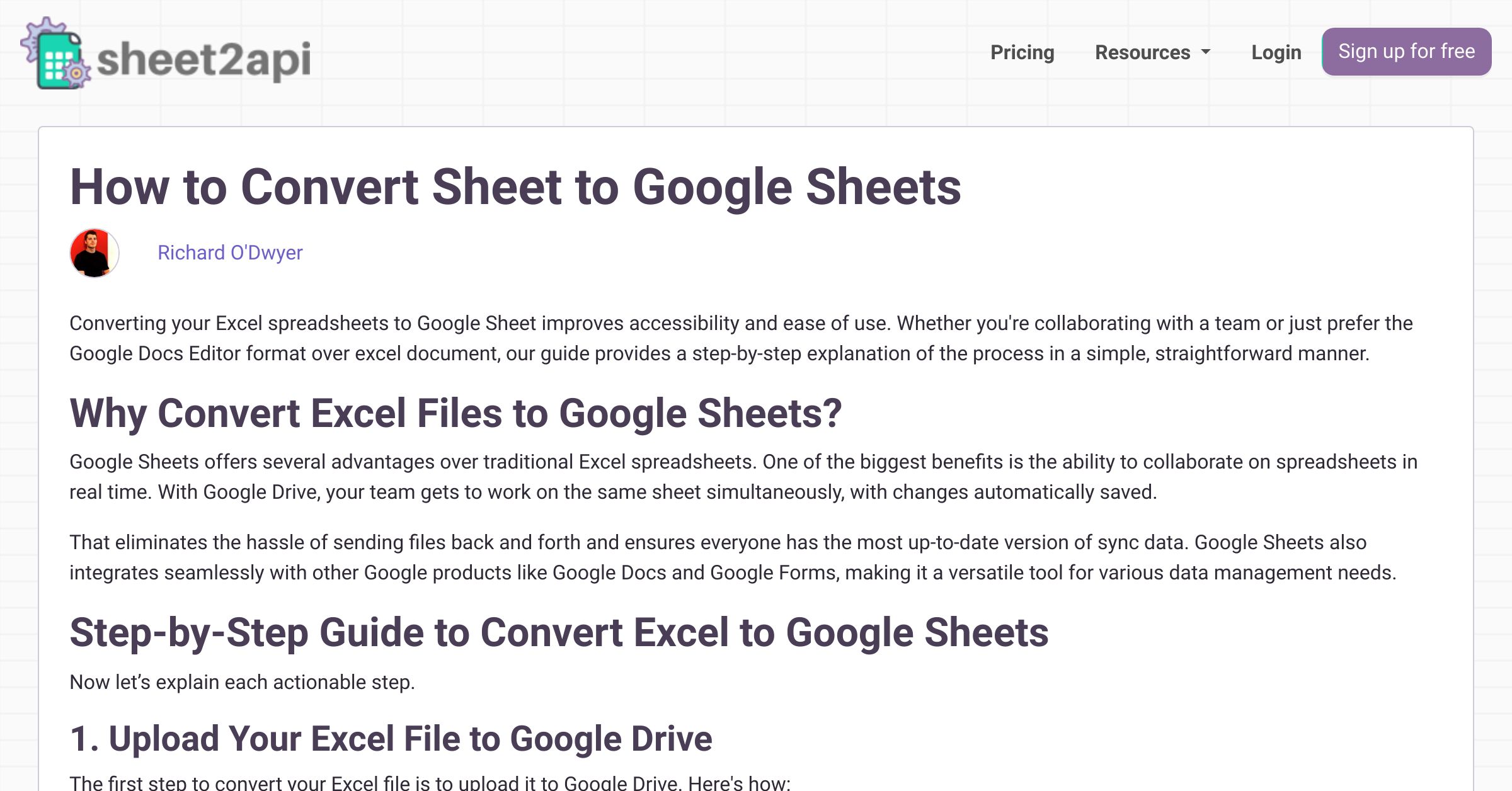Transfer Excel Sheets to Google Sheets Quickly and Easily

Are you tired of managing multiple spreadsheets across different platforms? Do you need a quick and efficient way to consolidate your data? Transferring your Excel sheets to Google Sheets can streamline your workflow, making collaboration and data analysis far more accessible. In this blog post, we'll guide you through the quickest and easiest methods to transfer your Excel sheets to Google Sheets. Whether you're an office worker, a data analyst, or just someone looking to organize personal finances, these steps will save you time and reduce the hassle of juggling between Microsoft and Google ecosystems.
Why Switch to Google Sheets?

Before diving into the how-to, let's briefly touch on why you might want to migrate your data:
- Cloud-Based Access: Work from anywhere on any device with an internet connection.
- Real-Time Collaboration: Multiple users can edit the same sheet at once, seeing changes in real-time.
- Automatic Backups: Google automatically saves versions of your documents, protecting you against data loss.
- Integration: Seamless integration with other Google services like Google Drive, Docs, and Forms.
- Cost-Effective: Google Sheets is free for personal use, making it an excellent choice for those not tied to Office 365.
Methods to Transfer Excel Sheets to Google Sheets

Method 1: Uploading Excel Files to Google Drive

This is the simplest method if you have Excel files saved on your computer.
- Navigate to Google Drive and log in with your Google account.
- Click the + New button on the top left corner.
- Select File upload.
- Locate and select your Excel file from your device.
- Once the file is uploaded, right-click on the file name in Google Drive.
- Select Open with > Google Sheets.
- The Excel sheet will now open in Google Sheets, automatically converting to a Google Spreadsheet format.
🌟 Note: If your Excel file contains complex features like macros or pivot tables, you might lose some functionality during the conversion to Google Sheets.
Method 2: Direct Import via Google Sheets

If you’re already in Google Sheets and want to import an Excel file:
- Open Google Sheets and go to File > Import.
- Choose Upload from the options, then select your Excel file from your device.
- Select how you want to import:
- Create new spreadsheet
- Insert new sheet(s)
- Replace spreadsheet
- Click Import data after choosing your settings.
Method 3: Using Microsoft Excel Online

If you have Excel Online access:
- Open the Excel file in Excel Online.
- Go to File > Share, then click on Get a link.
- Choose Anyone with the link can edit and copy the link.
- In a new tab, open Google Sheets.
- Go to File > Import > URL, paste the link, and click Import data.
🌟 Note: This method requires that the Excel file is on a SharePoint site or OneDrive where you have permissions to share links.
Method 4: Using Google Takeout for Larger Transfers

For transferring multiple Excel sheets at once:
- Visit Google Takeout.
- Deselect all and then select Drive.
- Customize export: Choose the specific Excel files from your Drive.
- Choose your export settings (email, download link, or cloud storage destination).
- Google will prepare your export, and you’ll receive an email with a download link.
Addressing Common Concerns

Formulas and Formatting: Google Sheets generally maintains most Excel formulas, though some may need adjustment. Formatting might also be affected, so checking and possibly redoing the formatting is advisable.
Compatibility with Advanced Features: While basic functions like charts, filters, and conditional formatting are well-supported, advanced Excel features like Power Query or Vlookup might not work exactly the same way.
Collaborative Editing: One of Google Sheets' strongest features is its collaborative editing capabilities. After transferring, you can immediately share the spreadsheet for group work.
🌟 Note: Ensure your internet connection is stable when performing these transfers to avoid data corruption or loss.
Automation: If you use macros or scripts in Excel, consider learning Google Apps Script or use add-ons that can help automate tasks in Google Sheets.
Switching from Excel to Google Sheets might take some adjustment, but the benefits of cloud-based access, real-time collaboration, and the integration with other Google services often outweigh the initial learning curve. By following these methods, you can transfer your Excel sheets to Google Sheets quickly, ensuring your data remains usable and accessible for all your needs.
Will all my Excel formulas transfer to Google Sheets?

+
Most basic Excel formulas will transfer seamlessly, but you might need to adjust some more complex or custom functions. Google Sheets supports a wide range of Excel formulas, but there are exceptions where Excel’s proprietary functions might not have direct equivalents in Google Sheets.
How do I handle large files?

+
Google Sheets has a limit of 2 million cells per spreadsheet, but if your Excel file is particularly large or complex, you might need to split it into smaller parts or use Google Takeout for an easier transfer.
What if my Excel file contains sensitive data?

+
When dealing with sensitive data, ensure that you have appropriate access controls in place. Google Sheets allows you to set permissions for viewing, editing, or commenting. Also, consider using encryption or secure storage options for extremely sensitive information.



